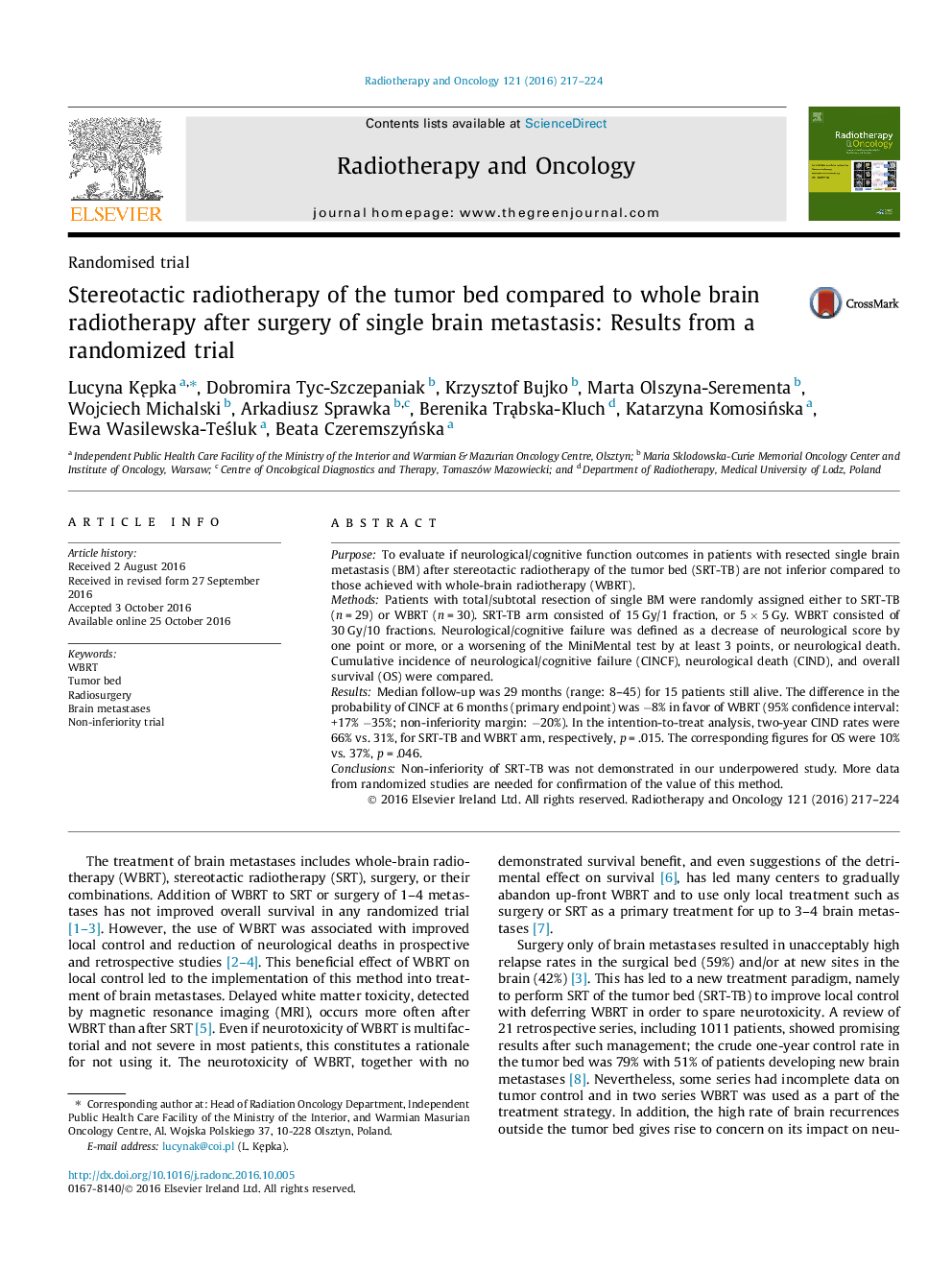| Article ID | Journal | Published Year | Pages | File Type |
|---|---|---|---|---|
| 5529957 | Radiotherapy and Oncology | 2016 | 8 Pages |
PurposeTo evaluate if neurological/cognitive function outcomes in patients with resected single brain metastasis (BM) after stereotactic radiotherapy of the tumor bed (SRT-TB) are not inferior compared to those achieved with whole-brain radiotherapy (WBRT).MethodsPatients with total/subtotal resection of single BM were randomly assigned either to SRT-TB (n = 29) or WBRT (n = 30). SRT-TB arm consisted of 15 Gy/1 fraction, or 5 Ã 5 Gy. WBRT consisted of 30 Gy/10 fractions. Neurological/cognitive failure was defined as a decrease of neurological score by one point or more, or a worsening of the MiniMental test by at least 3 points, or neurological death. Cumulative incidence of neurological/cognitive failure (CINCF), neurological death (CIND), and overall survival (OS) were compared.ResultsMedian follow-up was 29 months (range: 8-45) for 15 patients still alive. The difference in the probability of CINCF at 6 months (primary endpoint) was â8% in favor of WBRT (95% confidence interval: +17% â35%; non-inferiority margin: â20%). In the intention-to-treat analysis, two-year CIND rates were 66% vs. 31%, for SRT-TB and WBRT arm, respectively, p = .015. The corresponding figures for OS were 10% vs. 37%, p = .046.ConclusionsNon-inferiority of SRT-TB was not demonstrated in our underpowered study. More data from randomized studies are needed for confirmation of the value of this method.
